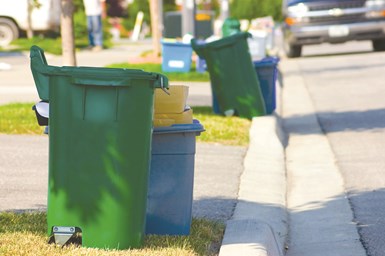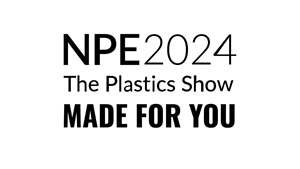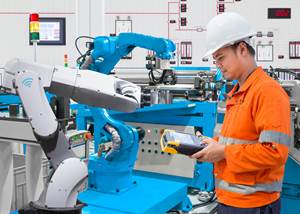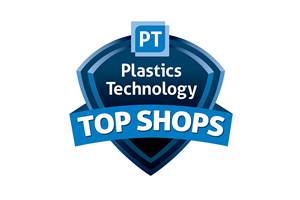Sustainability: It Won’t Happen Overnight
Plastics has made great strides in becoming a part of the circular economy. The industry and its partners realize more needs to be done. Is there time?

I don’t think there is any doubt that our industry is taking sustainability — or maybe you want to call it the circular economy or the green economy — seriously. Literally not a day passes without me receiving press releases from materials companies (polymer producers and compounders), machine builders of all kinds and processors promoting their efforts in this area. Next year’s NPE2024, the giant plastics show, will have a heavy emphasis on sustainability, highlighting the advances being made in the businesses of producing and processing plastics.
I applaud the Plastics Industry Association (PLASTICS) for its new “Recycling is Real” campaign, which endeavors to educate policymakers on the real progress the industry is making on that front. And I also commend the American Chemistry Council, through its America’s Plastics Makers unit, for their efforts in their TV and social media spots to educate the public on plastics and sustainability.
I just hope people take heed. We live in an increasingly impatient world, driven I feel more by emotion, often combined with fury and vitriol, than facts. Maybe this is because “facts” aren’t so easy to come by today. That aside, ours is a complicated industry with many moving pieces and the challenges we face require collaborations of companies throughout the supply chain, and these take time. Our responses to problems and challenges tend to be knee-jerk — “There are bottles in the ocean! Ban the bottles! There’s a bag in the street! Ban the bags!” (Or make them thicker so they won’t be as easily carried by the wind, which was one local lawmaker’s idea some years back.)
Matt Seaholm, CEO and president at PLASTICS, knows full well that change takes time. Responding to questions from Associate Editor Matt Stonecash in an article published on ptonline.com, he had this to say about current recycling rates, estimated by the EPA as 8.7% in 2018, “The rate needs to go up. We have big problems in sorting and collection. We need to make it convenient for consumers with curbside programs. Many MRFs (material recovery facilities) are operating older technologies that have not kept up with changes in plastic packaging. The industry needs partners because we do not control the whole process. We need to surround the table with people who understand that recycling can work, and that industry is ready and willing.”
The good news is MRFs are starting to embrace new technologies. Last year, Dow and Waste Management (WM) announced they’d collaborate on a venture to improve residential recycling for flexible films by enabling consumers in select markets to recycle these materials directly in their curbside recycling. At that time, WM said it expects to invest over $800 million through 2025 to improve and enhance recycling infrastructure, including specialized technology that will enable WM to sort plastic films. And true to its pledge, WM recently opened a waste recovery center in near Cleveland, equipped with new technology to accommodate flexible films.
But there are other tables, and seated at those are groups that are not friendly to plastics. And these groups have a lot of resources and plenty of muscle. Just a few months ago, former New York City Mayor Michael Bloomberg, through Bloomberg Philanthropies, launched an $85 million campaign called Beyond Petrochemicals, which his website says will “turbocharge existing efforts led by frontline communities to block the expansion of more than 120 proposed petrochemical projects concentrated in three target geographies – Louisiana, Texas and the Ohio River Valley.”
I am proud to have spent more than 35 years covering what I feel is an extremely creative industry, one that has contributed tremendous value with innovations that have enhanced a range of industries that include medical, packaging, automotive, consumer products and electronics. I have no doubt we are up to the challenge of making our products in a more sustainable way. I hope we have the time.
Related Content
Be Our Guest
The Plastics Technology Expo (PTXPO) returns March 18-20 at the Donald E. Stephens Convention Center in Rosemont, Illinois, with elements old and new.
Read MoreWelcome to our NPE2024 Show Issue
Megatrends such as sustainability are the driving force behind a slew of new product introductions at the May show. Catch up on what’s in store on the show floor right here.
Read MoreRevisited: A Processor's Checklist for When Business Is Slow
Business slowdowns may provide you with more time for introspection. If you want to take a deeper dive into your operation, here are some things to consider.
Read MoreSharpen Your Pencils: Participate In ‘Top Shops' Benchmarking Survey
The free, anonymous survey of injection molders is open for responses, and all shops that complete the questionnaire will receive a customized report of the results. Honorees also will be recognized in the magazine.
Read MoreRead Next
Lead the Conversation, Change the Conversation
Coverage of single-use plastics can be both misleading and demoralizing. Here are 10 tips for changing the perception of the plastics industry at your company and in your community.
Read MoreFor PLASTICS' CEO Seaholm, NPE to Shine Light on Sustainability Successes
With advocacy, communication and sustainability as three main pillars, Seaholm leads a trade association to NPE that ‘is more active today than we have ever been.’
Read More




















